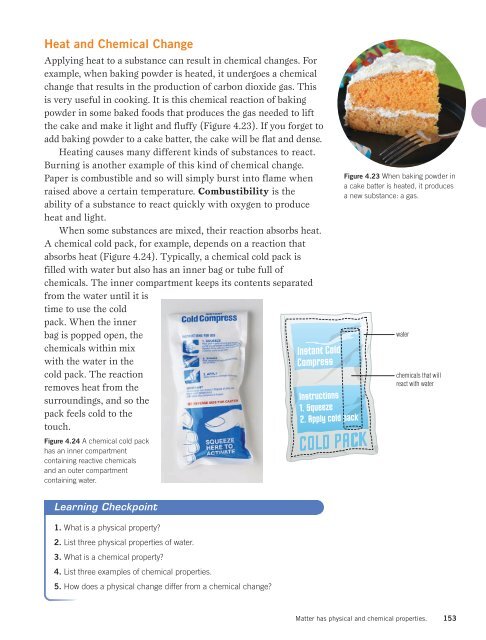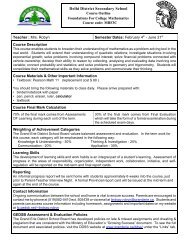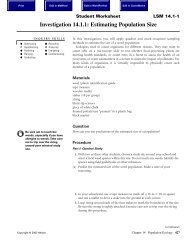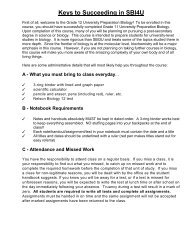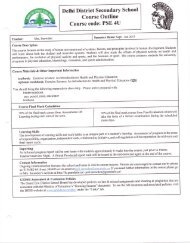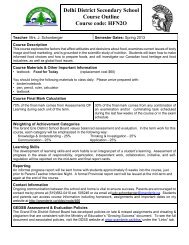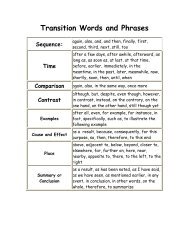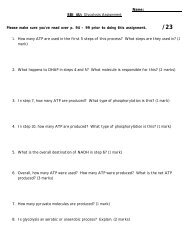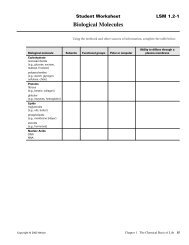Chapter 4.pdf
Chapter 4.pdf
Chapter 4.pdf
Create successful ePaper yourself
Turn your PDF publications into a flip-book with our unique Google optimized e-Paper software.
Heat and Chemical Change<br />
Applying heat to a substance can result in chemical changes. For<br />
example, when baking powder is heated, it undergoes a chemical<br />
change that results in the production of carbon dioxide gas. This<br />
is very useful in cooking. It is this chemical reaction of baking<br />
powder in some baked foods that produces the gas needed to lift<br />
the cake and make it light and fluffy (Figure 4.23). If you forget to<br />
add baking powder to a cake batter, the cake will be flat and dense.<br />
Heating causes many different kinds of substances to react.<br />
Burning is another example of this kind of chemical change.<br />
Paper is combustible and so will simply burst into flame when<br />
raised above a certain temperature. Combustibility is the<br />
ability of a substance to react quickly with oxygen to produce<br />
heat and light.<br />
When some substances are mixed, their reaction absorbs heat.<br />
A chemical cold pack, for example, depends on a reaction that<br />
absorbs heat (Figure 4.24). Typically, a chemical cold pack is<br />
filled with water but also has an inner bag or tube full of<br />
chemicals. The inner compartment keeps its contents separated<br />
from the water until it is<br />
time to use the cold<br />
pack. When the inner<br />
bag is popped open, the<br />
chemicals within mix<br />
with the water in the<br />
cold pack. The reaction<br />
removes heat from the<br />
surroundings, and so the<br />
pack feels cold to the<br />
touch.<br />
Figure 4.24 A chemical cold pack<br />
has an inner compartment<br />
containing reactive chemicals<br />
and an outer compartment<br />
containing water.<br />
Figure 4.23 When baking powder in<br />
a cake batter is heated, it produces<br />
a new substance: a gas.<br />
water<br />
chemicals that will<br />
react with water<br />
Learning Checkpoint<br />
1. What is a physical property<br />
2. List three physical properties of water.<br />
3. What is a chemical property<br />
4. List three examples of chemical properties.<br />
5. How does a physical change differ from a chemical change<br />
Matter has physical and chemical properties.<br />
153


